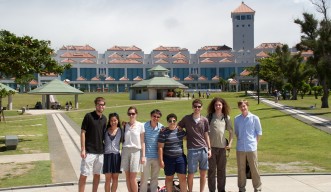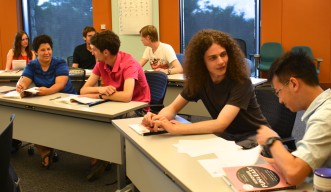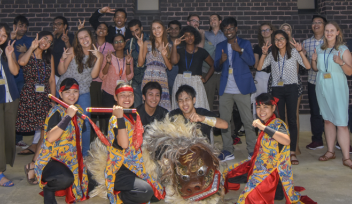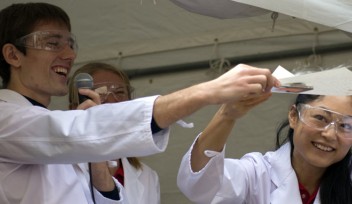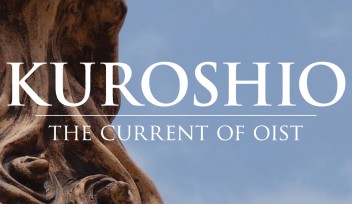Undergrads Experience Life at OIST
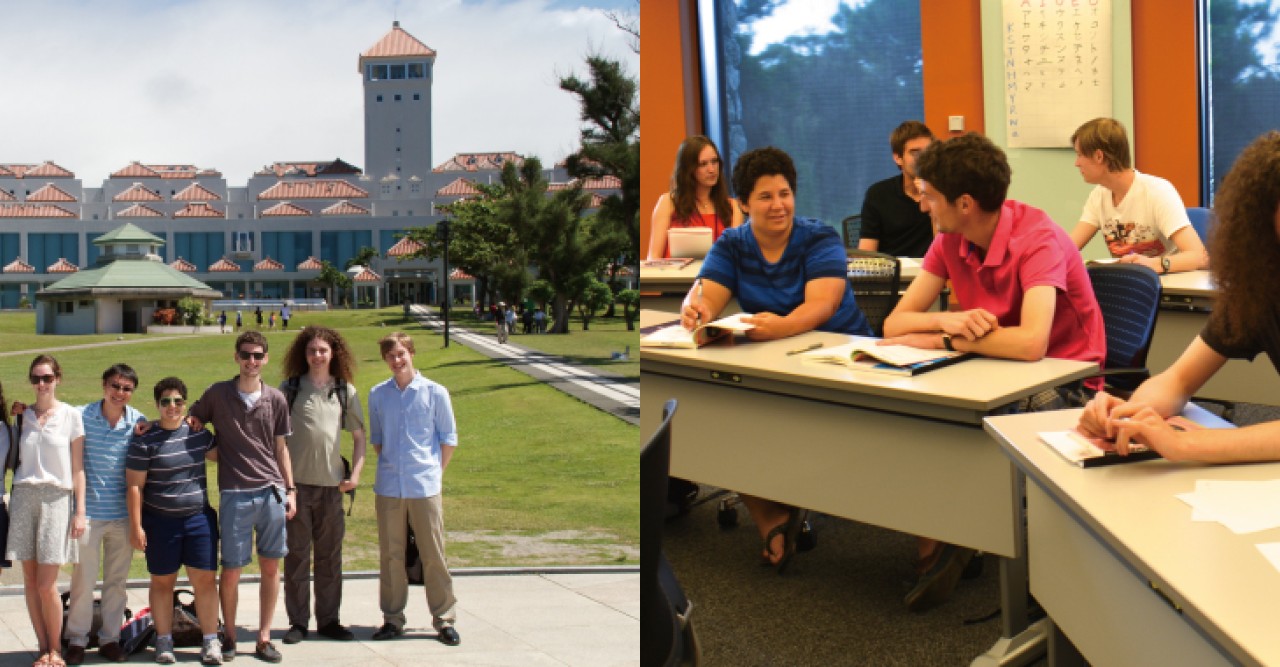
The second OIST Research Intern Summer Program is now underway. The 2013 program, a collaborative effort with Oxford and Harvard Universities, allows undergraduates who plan to continue their studies, to gain research experience and to become acquainted with OIST’s doctoral program. The initial screening of applicants from various universities took place by the two collaborating institutions. From the short list of 47 students, OIST selected 10 applicants from four universities in the U.K., the U.S. and Canada. These interns are assigned to research units in their areas of interest, where they are mentored in research projects by members of the units. The ten-week program concludes in late August.
Gesthika Kaltsidis from Western University of Canada, who is interning in the Human Developmental Neurobiology Unit led by Prof. Gail Tripp, seemed content with the arrangement, saying, “Gail is a highly respected person. Unit members gave me a warm welcome, and I was immediately comfortable with them.” She also commented on the interdisciplinary environment at OIST, “I believe that there is significance in exchanging with people of different fields in this global society.” Cameron Deans of the University of Oxford, who joined the Quantum Dynamics Unit headed by Prof. Denis Konstantinov, expressed his expectations saying, “Having not previously had the opportunity to work in a lab, I mainly want to learn what research is like. This program allows me to experience this and to decide primarily if it is something I would want to continue. It also lets me apply the theory that I have learnt in a practical way.” Another intern, Raphael Chow, who is studying biochemistry at the University of Oxford, spoke excitedly about his internship in the G0 Cell Unit led by Prof. Mitsuhiro Yanagida. “In the first two weeks I learnt the basics of conducting research using fission yeast (S. pombe) cells. This includes culturing cells to obtain a growth curve, and studying cell morphology by fluorescence microscopy. In the coming weeks, I will use the skills I have learnt to conduct a novel experiment using an inhibitor that will hopefully confirm previous findings from the Yanagida unit.”
The internship program also includes activities for the whole group, survival Japanese classes, and excursions to local sites of interest. Dr. Harry Wilson, Leader of the Academic Services Section, who heads the internship program says, “We wanted to have a more coordinated program to allow a group of students to come together as a group, and develop stronger ties among them and with OIST.”
For press enquiries:
Press Inquiry Form










